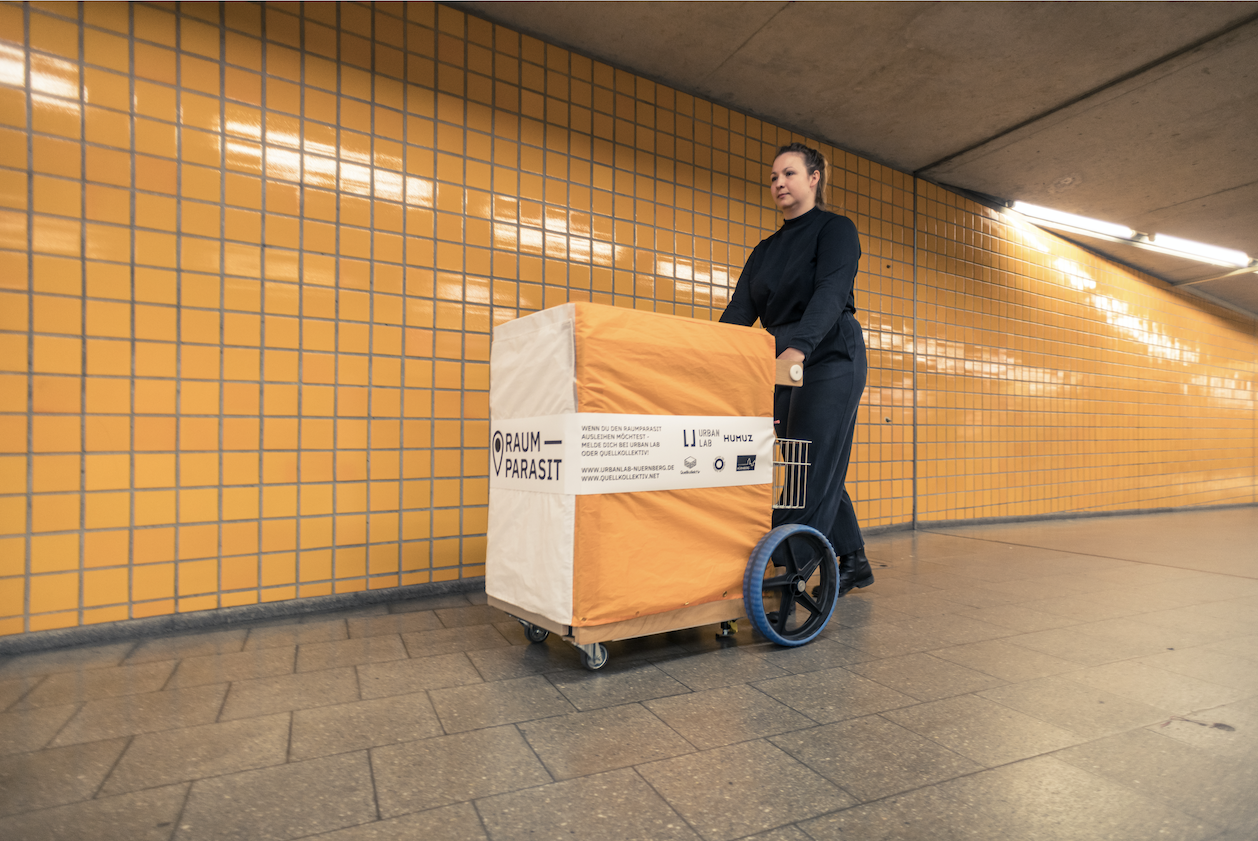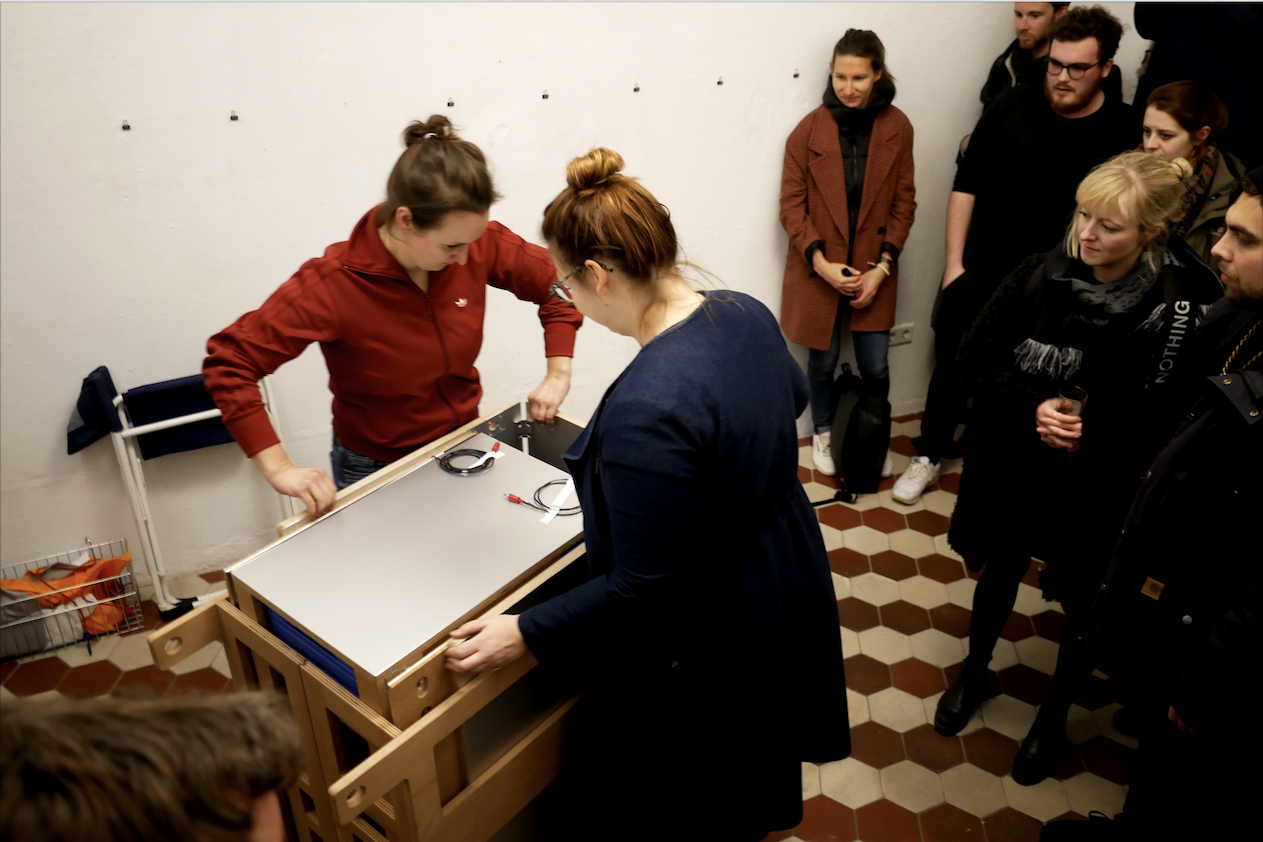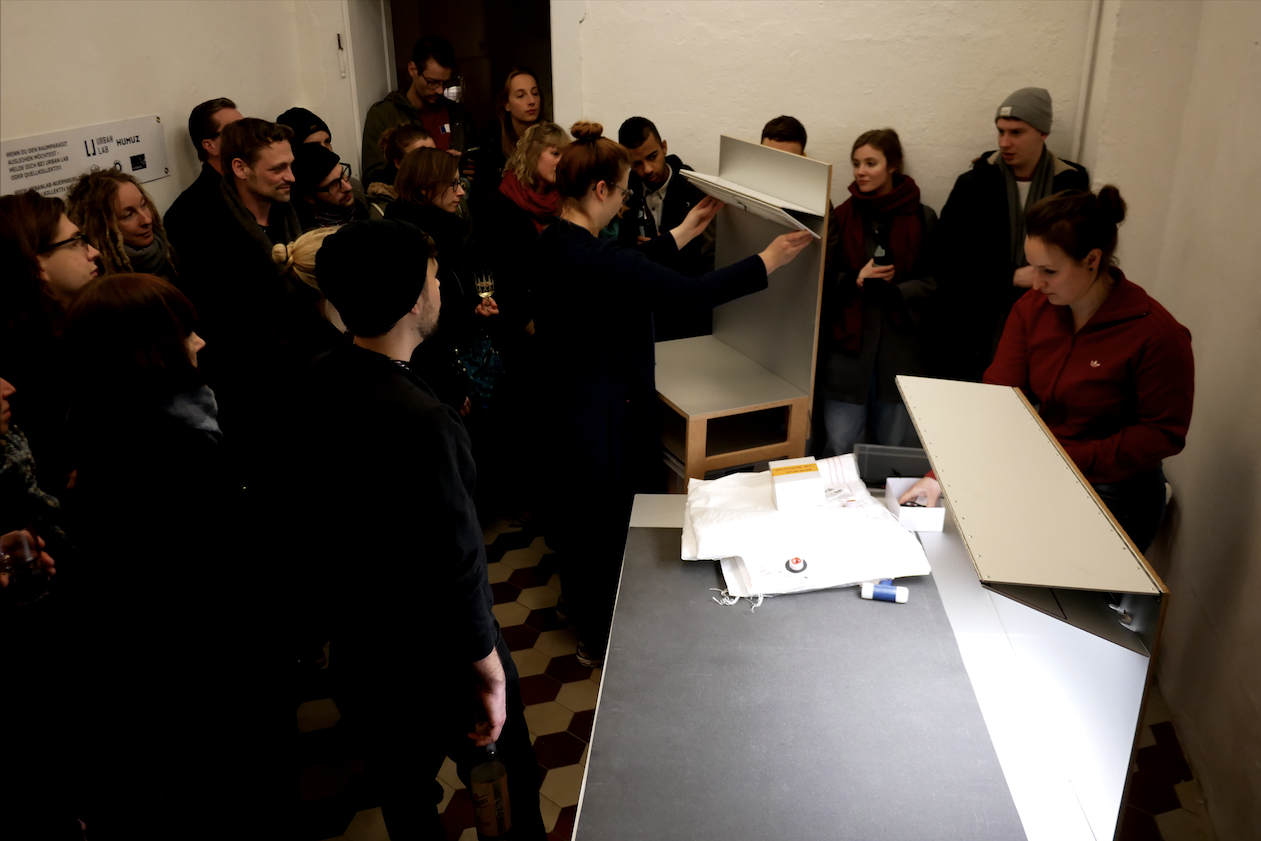Raumparasit
Basic information
Project Title
Full project title
Category
Project Description
Raumparasit is a module piece of furniture, that offers creatives the necessary infrastructure to temporarily turn vacant spaces into workplaces.
Project Region
EU Programme or fund
Description of the project
Summary
Raumparasit is a module piece of furniture, that offers creatives the necessary infrastructure to temporarily turn vacant spaces into workplaces.
The Raumparasit was developed out of a study on the space situation of creative professionals, carried out in Bau74 AufAEG, a cultural, post-industrial interim use with 100 creative individuals in Nuremberg. This building is about to be vacated and in view of the hopeless space situation for creative workers in Nuremberg, we developed the Raumparasit, which enables a quick and flexible temporary access to vacancies by providing the framework infrastructure that creative workers need for their work. The functions and contents of the Raumparasit were developed by Sebastian Schnellbögl and designed by Cosima Schugmann.
The project is part of a local alliance that addresses creative spaces in the city of Nuremberg. It makes problems visible and strengthens the political implementation of further tools and strategies for creative spaces in Nuremberg.
Next step is the development of a lending system that makes the Raumparasit accessible to local actors.
Key objectives for sustainability
- With Raumparasit we are following the implementation of SDGs 9, 11 and 17.
- Abandoned buildings and empty spaces is a huge waste of resources in post-industrial cities like Nuremberg. Raumparasit makes it easier to access those spaces and strengthens the local creative industry.
- Raumparasit offers a workplace, a kitchen and a little lounge. No additional resources have to be spent. It is a rental system and can be reused by a variability of creatives, artists and designers.
Key objectives for aesthetics and quality
In our case, the key objective was on the one hand to develop a tool, that fulfills the needs of creatives and to lower the barriers of in-between-use. On the other hand we are trying to spotlight the challenges creatives face in terms of affordable workplaces in urban spaces. The title "Raumparasit" (space parasite) itself raises questions and opens up discussions. In the end, the our society as a whole needs to ask itself: How important are art and culture to us if we push them to the city fringes?
Key objectives for inclusion
Raumparasit makes sure that artists, creatives and designers still find places to work in the european city of the future.
Innovative character
Raumparasit is a co-machine, a tool of self-empowerment for creatives, that is shared between institutions and communities and lowers the barriers for in-between-uses and can also be strategically implemented by cities and even real estate companies.



